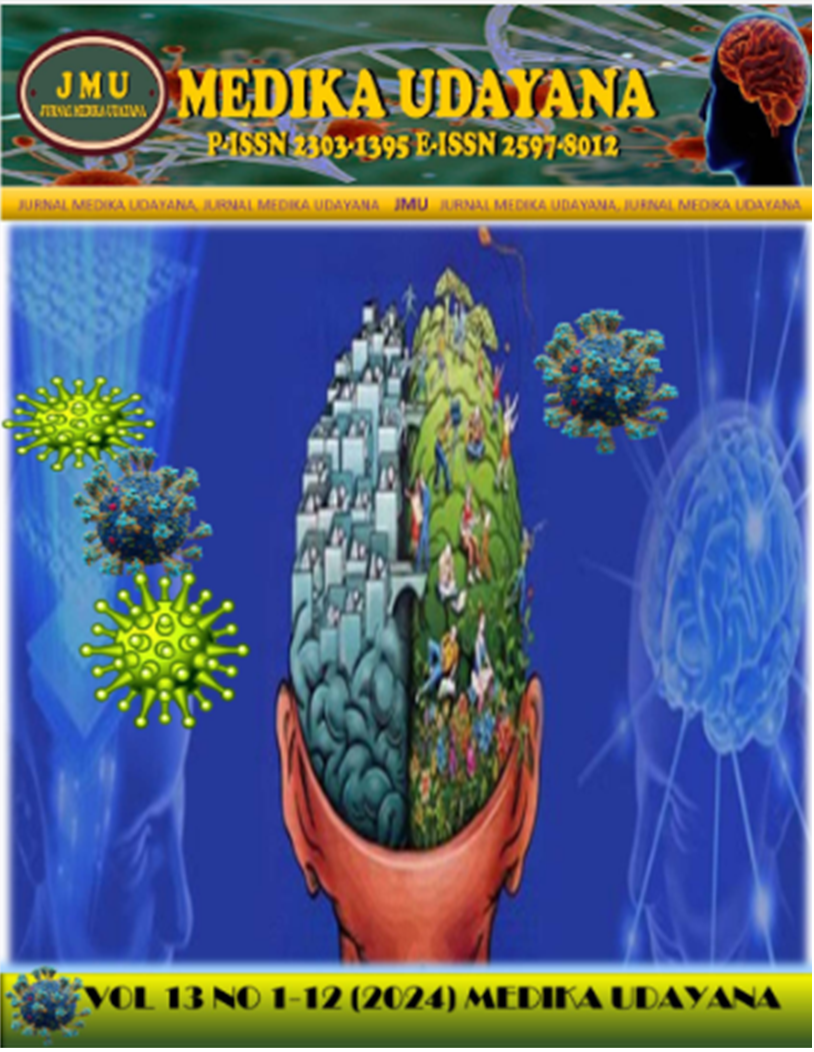THE CORRELATION BETWEEN MARRIAGE AND DEMENTIA IN ELDERLY AT THE WREDA SEJAHTERA ASSOCIATION (PWS) IN DENPASAR CITY
Abstract
ABSTRACT
Elderly individuals are considered more vulnerable to experiencing dementia due to the various changes they undergo in life, one of which is marriage. Certain marriage status may have a higher likelihood and risk of being associated with dementia. This research aims to provide a description of characteristics and identify the relationship between marriage and dementia among elderly at the Wreda Sejahtera Association (PWS) in Denpasar. This study employed a cross-sectional analytic design. Data were collected through face-to-face interviews and with MoCA-INA to evaluate characteristics and incidence of dementia among 88 elderly. Data were then analyzed using univariate and bivariate, and multivariate analysis. Of the 88 elderly, 9.1% had dementia where the majority were not with a partner (widow/widower). There was an association between dementia with marital status (p=0.000) and education (p=0.034). The risk of elderly with dementia is three times higher in widows/widowers than those who are still with their spouses. Odd ratio (OR) of elderly widow/widower was 30.608 (95%CI= 2.451-38.264). Marital status and age are risk factors contributing to the occurrence of dementia. Being unmarried or widowed/divorced can increase the likelihood of experiencing dementia, with this likelihood increasing as age advances. Preventive measures of dementia should be done as early as possible for divorced or unmarried people.
Keywords : Dementia, Elderly, Marriage











